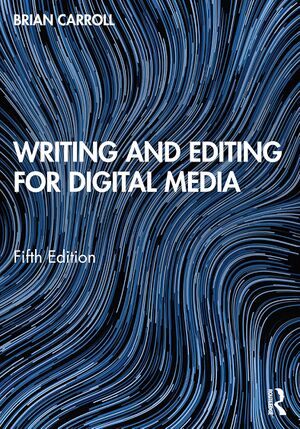First save. Much to update/change. |
Updates. Still more to do. |
||
| Line 40: | Line 40: | ||
Please read each project at the beginning of the semester, so you have an understanding of what will be expected of you during the semester. Some assignments will take longer to complete than others. '''Work a bit and practice every day'''—''avoid procrastination''. | Please read each project at the beginning of the semester, so you have an understanding of what will be expected of you during the semester. Some assignments will take longer to complete than others. '''Work a bit and practice every day'''—''avoid procrastination''. | ||
{{A note}} <mark>Students must complete '''all''' assignments in each of the first three requirements to successfully pass the course.Late work will not be accepted unless prior arrangements have been made with me.</mark> | |||
===Collaborative Wikipedia Project=== | ===Collaborative Wikipedia Project=== | ||
| Line 49: | Line 51: | ||
===Journal=== | ===Journal=== | ||
A daily process log will help you document your progress in the class at the same time allowing you to practice your writing regularly. This journal will be housed on various Wikipedia talk pages, emphasizing the betterment of Wikipedia and assist in community building. [[/Journal/|Read More »]] | A daily process log will help you document your progress in the class at the same time allowing you to practice your writing regularly. This journal will be housed on various Wikipedia talk pages, emphasizing the betterment of Wikipedia and assist in community building. [[/Journal/|Read More »]] | ||
{{Participation-online}} | {{Participation-online}} | ||
==Required Materials== | ==Required Materials== | ||
[[File:Carroll.jpg|thumb]] | [[File:Carroll-5.jpg|thumb]] | ||
This course has one required textbook (purchase using the {{Amazon}} link below or through another bookstore), an essay, and several handouts as web links or PDFs. | This course has one required textbook (purchase using the {{Amazon}} link below or through another bookstore), an essay, and several handouts as web links or PDFs. | ||
* {{cite book |last=Carroll |first=Brian |date=2023 |title=Writing and Editing for Digital Media |url=https://amzn.to/4gS2gEH |location=New York |publisher=Routledge |edition=Fifth }} | * {{cite book |last=Carroll |first=Brian |date=2023 |title=Writing and Editing for Digital Media |url=https://amzn.to/4gS2gEH |location=New York |publisher=Routledge |edition=Fifth }} | ||
* Various Links and PDFs. | * Various Links and PDFs. | ||
* A [[w:Help:Menu/Joining Wikipedia|Wikipedia account]]. | * A [[w:Help:Menu/Joining Wikipedia|Wikipedia account]]. | ||
| Line 103: | Line 102: | ||
* 07, Apr 23–29: Submit and Reflect | * 07, Apr 23–29: Submit and Reflect | ||
* 08, Apr 30: All requirements due. | * 08, Apr 30: All requirements due. | ||
==Instructor== | |||
{{Grl}} | |||
{{In Intro}} | |||
{{Notes}} | {{Notes}} | ||
Latest revision as of 09:52, 14 January 2025
Welcome to NMAC 5108!
Writing and Publishing in Digital Environments expands the definition of writing through the theory and practice of digital writing. It examines the ongoing evolution of writing and publishing in digital environments and its impact on personal, professional, and community-based projects. It prepares graduate students to analyze and solve design problems related to rhetorical delivery and content management in digital and online contexts. Individual and collaborative projects will require students to work flexibly across various digital platforms.
This particular section of NMAC 5108 will concentrate on writing and publishing on Wikipedia and emphasize the best practices for that platform.
Introduction
Again, welcome to NMAC 5108, Writing and Publishing in Digital Environments. The document you’re reading is your syllabus. Everything you need for this class is on this page or linked off of it. Bookmark it now and return here if you get lost or confused.
Please read this document and those it links to carefully at the beginning of the semester. There is much information to process, and it can be somewhat daunting. If you are confused, do your best to work through it by (re)reading this document carefully and completely, searching this site, or consulting the FAQ. In all likelihood, your question will be answered in this document. You may certainly contact me with questions. Trust yourself to follow directions and find the answers. Be careful and deliberate.
Since you are graduate students, I expect that you are all veteran users of new media. I’m assuming, since you’re taking this course, that you are comfortable with working by yourself and have a basic Internet fluency. Much of what we do in this course will involve using digital media, but also challenging our conventional uses and attitudes toward them. Please enter with an open mind. NMAC 5108 is also designed to let you discover and create your own knowledge using the powerful digital devices we all have access to. You will learn more about my approach shortly. If you’re curious to know more right now, you might want to read my teaching philosophy and peruse the articles under HackEdu.
Again, read this syllabus through carefully before beginning. You might want to take notes as you go, jotting down questions you have. I bet they are answered by the time you’re ready to begin the first lesson. If you end up still having questions, ask them on my talk page when you’ve made your Wikipedia account.
Requirements
| Requirement | % |
|---|---|
| Collaborative Wikipedia Project | 40% |
| Wiki Project | 30% |
| Journal | 20% |
| Participation / Daily Work | 10% |
This section of NMAC 5108 has three major requirements and daily work, listed in the chart on the right. Each requirement will be on-going throughout the semester, will require regular contributions, and be comprised of various assignments. Each assignment must be submitted in order to pass the course.
Projects you complete online should be able to stand alone; that is, the published wiki projects should not reference the class, but target a particular professional audience. Remember, these are public documents, not just assignments; your audience, if you’re considering yourself as part of an expert community, is not necessarily your classmates and professor.
Please read each project at the beginning of the semester, so you have an understanding of what will be expected of you during the semester. Some assignments will take longer to complete than others. Work a bit and practice every day—avoid procrastination.
![]() note: Students must complete all assignments in each of the first three requirements to successfully pass the course.Late work will not be accepted unless prior arrangements have been made with me.
note: Students must complete all assignments in each of the first three requirements to successfully pass the course.Late work will not be accepted unless prior arrangements have been made with me.
Collaborative Wikipedia Project
Our group project for the semester will be to write an article from scratch: The Faith of Graffiti is a 1974 essay by Norman Mailer about New York City’s graffiti artists. We will read, research, and write about the essay on Wikipedia as a class. Read More »
Wiki Project
This project has you writing a new Wikipedia article from scratch or making significant contributions to one or more articles—work equivalent to a graduate-level research paper. Read More »
Journal
A daily process log will help you document your progress in the class at the same time allowing you to practice your writing regularly. This journal will be housed on various Wikipedia talk pages, emphasizing the betterment of Wikipedia and assist in community building. Read More »
Online Participation / Daily Work
Since there is no (or limited) face-to-face class time, regular and active participation in online platforms is required. Your daily work online represents your attendance, e.g.: discussions, (b)log posts, training, exercises, short writing responses, reading quizzes, peer editing, and similar activities. Your participation in group activities and your online engagement will be weighed heavily in evaluation: participation, effort, and attitude count significantly; online learning requires active participation and enthusiasm .
Required Materials

This course has one required textbook (purchase using the Amazon affiliate[1] link below or through another bookstore), an essay, and several handouts as web links or PDFs.
- Carroll, Brian (2023). Writing and Editing for Digital Media (Fifth ed.). New York: Routledge.
- Various Links and PDFs.
- A Wikipedia account.
Your course book(s) and readings are an important part of the class and should be purchased (or downloaded) immediately. Lessons are built from specific readings and assignments will depend on those readings. If available, you may use an ebook, but be warned that page numbers referred to in lessons may not be the same in an electronic text. Book rentals are also acceptable, if necessary.
Even though this is an online course, I recommend old-fashioned, analog note taking. In other words: use an ink interface of some sort, as well as dead trees to take notes. Notes should not only reflect essential aspects of the readings, but individual interest in every topic researched for class.
Policies
Students are held accountable for knowing and practicing each of the following course policies. Consider them like the law: the excuse “I didn’t know” will carry no weight. In addition, students are responsible for reading, understanding, and adhering to all Middle Georgia State University institutional policies, including those linked on the Syllabus Policy page.
Students may withdraw from the course and earn a grade of “W” up to and including the midterm date. After midterm, students who withdraw will receive a grade of “WF.” Students are encouraged to read the MGA withdrawal policy before dropping/withdrawing from class.
Assignments and Deadlines
Your work represents you. Everything you turn in for evaluation should exemplify the very best of your professional self. Late work is unacceptable and will receive a zero. Technical problems do not excuse late work. Plan ahead and turn in your work on time. Last-minute work submissions are ineligible for revision for a higher grade.
Attendance
Attendance for online courses is based on consistent participation. While students may work within lessons at their own pace, there will be assignments and milestones due regularly, usually each week. In other words: students are required to submit work each week to remain in good-standing. I recommend working a bit every day for consistency and to facilitate learning. Any registered student who does not submit work the first week will be counted as a no-show. Large gaps in participation (more than a week of not working) will be grounds for failure.
Behavior
Students should conduct themselves like students: take notes, pay attention, ask questions, eliminate distractions, and listen. Improper conduct, including academic falsehood, will negatively effect your grade and may result in other disciplinary measures.
Communication
Communication is integral to success, no matter what we’re talking about. In a digital world, these literacies are particularly important. Not only should you develop and perfect your communication skills while in college, you need to use those skills everyday with your peers and professors.
Evaluation
Evaluation depends on overall student performance: on the successful completion of all requirements, regular participation, and positive attitude. Some requirements are weighed heavier in evaluation, but all are essential to successfully complete the class. Letter grades are based upon a traditional ten-point scale. Grades for this class will be based on the point system.
Participation
Active participation in the classroom is required. Your daily work and attendance represents your participation, e.g.: reading, discussions, training, exercises, library tasks, reading quizzes, peer editing, the viewing of a film, and similar activities. Your participation in group activities and your preparation for class will be weighed heavily in evaluation: participation, effort, and attitude count significantly. You should not sit in class like you’re watching TV: learning requires active participation and enthusiasm . Participation grades cannot be made up.
Plagiarism
Plagiarism is serious academic misconduct. Willful or accidental plagiarism—including using AI tools to generate assignments—will result in assignment failures, potential class failure, and will be pursued to incite the utmost penalty for such dishonesty.
Research
All writing in this course should be supported with both primary (readings I assign you) and secondary (sources you find yourself) texts. All suppositions must be supported with evidence, whether they appear on a forum post, a blog post, a Wikipedia article, or class discussion. In other words: research is an integral component of everything you do in this course. Any ideas that are not supported might as well not be written.
Technology Requirements
All students should have a newish computer with dependable Internet access. A tablet for reading PDFs is convenient, but not a requirement of the course. Students should check the course site daily for updates. Students are responsible for working out all of their technical difficulties.
Schedule
This schedule represents the ideal outline for our study this semester. Yet, like all best-laid plans, we may not be able to keep up with our agenda. Please be flexible and try to look and read ahead whenever possible. This schedule is tentative and subject to change contingent upon the needs of the students and the professor, and dictated by time and other constraints which may affect the course.
Overview and Instructions for Work
|
|---|
|
All assignments are due Tuesday evenings at 11:59 pm. Have the assigned text(s) read by Fridays at the latest, so you can post your questions and responses to Packback well ahead of the due date. Procrastination and posting at the last minute will earn you lower grades. I suggest the following work schedule for each week:
Look ahead and plan your reading accordingly. I have tried to keep reading to a minimum, but if you are a slower reader, like I am, you may want to plan out your reading schedule so that you can meet the course deadlines. |
Schedule Overview
- 01, Mar 05–11: Introduction & Orientation
- 02, Mar 12–25: Evaluate, Research, Cite
- 03, Mar 26–Apr 01: Topics and Sources
- 04, Apr 02–08: Copyediting and Finalizing Your Topic
- 05, Apr 09–15: Evaluate, Research, Cite
- 06, Apr 16–22: Revise and Move
- 07, Apr 23–29: Submit and Reflect
- 08, Apr 30: All requirements due.
Instructor
I try to make myself as available as much as possible during the first couple weeks of a semester, including evenings and weekends. If you need to chat with me, schedule a video conference via Zoom or Teams, if necessary. Please do not expect a response after 5pm on weekdays or anytime during the weekend. I may be available, but I also need some down time. Thanks for your understanding.
notes
- ↑ As an Amazon Associate I earn from qualifying purchases; links to Amazon contain my associate ID. All revenue earned goes to support the costs associated with maintaining this web site.
| 🕒 01-14-2025 | 📆 Make an Appointment | 💬 Ask a Question | 📣 Leave Feedback |



